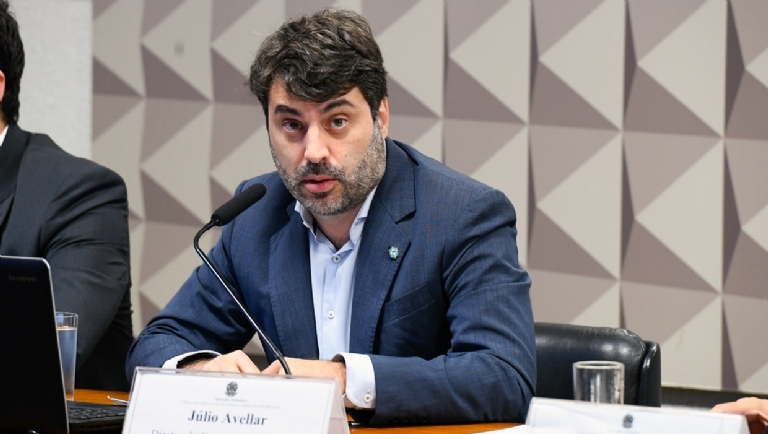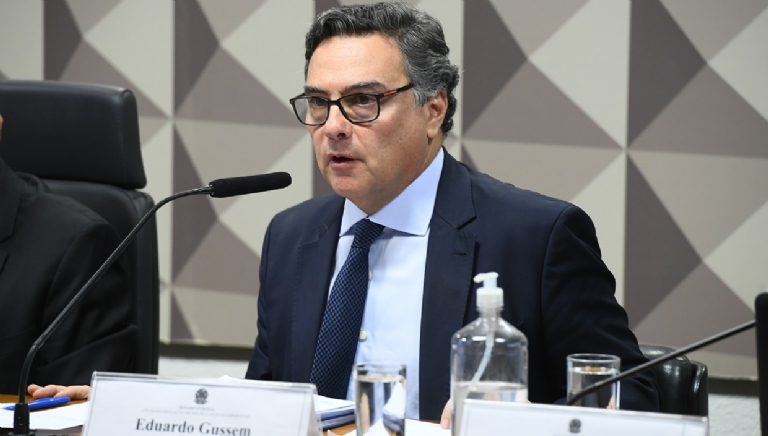

Regarding the complaints made by John Textor, owner of SAF Botafogo, about manipulation of results, the CBF directors stated that the entity is open to hearing them. When responding to senator Carlos Portinho (PL-RJ), director Júlio Avellar said that he was not personally approached by John Textor, but noted that the CBF is open to receiving representatives from any affiliated club.
The CBF Integrity officer, Eduardo Gussem, added that public authorities are responsible for analyzing possible evidence. In his opinion, however, the matter came to public attention in an “inverted way”, as it would require more care with possible evidence. He also said that the CBF's doors will always be open, but pointed out that contact needs to go beyond a conversation and indicate the evidence of the complaint.
According to Avellar, the CBF has been working against match-fixing together with the International Football Federation (FIFA) and the South American Football Confederation (Conmebol).
Also according to the entity's director, the CBF is the only one among its affiliated associations that has a permanent office at FIFA itself “to monitor what is happening in the world of football.” According to Avelar, there are more than 100 initiatives underway to professionalize Brazilian football, with the CBF being a global reference, mainly in relation to measures to combat match-fixing.
“At all times we have been supported by FIFA and Conmebol. We work to place the CBF in global leadership in combating match-fixing,” declared the director.

Avelar said that the problem of result manipulation is old, but considered that, with the internet and international betting platforms, the problem has worsened. He informed that there is also a collaboration protocol between the CBF and the Federal Police on suspected cases, and pointed out that the problem requires a quick response from entities linked to the sport and also from public authorities.
According to Avelar, the CBF has been recording a decline in suspected cases in national football. In 2022, there were 139 cases, involving several competitions and divisions. Last year, there were 110. This year, there were 15 suspicious situations. According to the director, this decrease is due to more severe monitoring measures and punishments, whether in the sporting or criminal sphere.
Macolin Convention
Avelar said that the CBF has been suggesting Brazil's accession to the Macolin Convention for more than a year. He informed that he sent the CPI a copy of the text of the convention, already translated into Portuguese. According to Avelar, the convention is the first and only international legal instrument to combat the manipulation of sports results. The document came into force in 2019 and has the support of almost 50 countries.
“Brazil’s adherence to this convention is very important. It is a fundamental step towards formulating a robust and integrated national strategy to combat match-fixing,” he noted.
He also suggested actions with the United Nations Office on Drugs and Crime (UNODC), linked to the United Nations (UN), to implement in Brazil the Global Program to Safeguard Sport against Corruption and Crime, created in 2017.
Eduardo Gussem also defended Brazil's accession to the Macolin Convention. The CBF director recalled that Brazil has already adhered to several international conventions that even need to be confirmed in the Senate.
Gussem explained that the Macolin Convention was ratified in France in 2014 and, since then, has been endorsed by several countries. According to Gussem, the signing of this convention will be an important step forward for Brazilian football.
“We do need to sign this convention, which is a starting point. We will be inserted in a global context, and this is very important for football. It will bring security and it will bring health,” declared Gussem.

Questions
CBF directors also answered several questions from senators. Romário questioned whether the VAR (referee auxiliary video) could identify suspicions of manipulation. In response, Júlio Avelar stated that the CBF uses the standard deviation methodology. He admitted that artificial intelligence (AI) could be used in the future, but said he was unaware of the use of VAR by AI in any official championship.
“The CBF is willing to use any tool that can be used to combat result manipulation,” he replied.
Also in response to Romário, director Eduardo Gussem said that the CBF signed an agreement with the Federal Police and the Ministry of Justice to develop the athlete's passport - a document in which the CBF records specific confidential information about the athlete and passes it on to public authorities in suspected cases.
Gussem stated that, in the case of suspected involvement of a player with match manipulation, the CBF analyzes the evidence and forwards the material to the authorities, who in turn will conduct the investigations.
Sportradar and bookmakers
Carlos Portinho wanted to know about the monitoring contract that CBF has with the company Sportradar. Avellar informed that there is a FIFA contract with Sportradar that includes the CBF and there is also an additional contract between the CBF itself and the company, in force until the end of this year.
He also questioned whether the CBF has reporting channels and Avelar clarified that the entity's emails can be used by ordinary citizens who want to report any suspected irregularity.
Portinho also questioned whether bookmakers are informed in the event of suspected manipulation of results and Avelar responded that there is no specific compliance document, but the regulations contain rules that deal with the fairness of the championships and the importance of adhering to the rules. Given the information, Portinho regretted the fact that the CBF did not have a compliance document with bookmakers and clubs.
When responding to a question from senator Chico Rodrigues (PSB-RR), Gussem informed that other countries also have betting houses as sponsors of football leagues, entities and championships. He cited examples from countries such as Italy, Belgium, Portugal, Mexico, Argentina and Sweden. He also said that sports such as motorsport and American football also receive sponsorship of this nature.
“It has become a great reality that the world will have to live with,” pondered Gussem.
Absence
CBF's Director of Governance and Compliance, Hélio Santos Menezes Júnior, had also been invited to speak to the CPI. According to the president of the commission, senator Jorge Kajuru (PSB-GO), the CPI was informed that he would not be able to attend due to a CBF meeting also this Monday.
Kajuru said that Hélio Júnior informed the commission that he is available to speak to the CPI and his testimony is already scheduled for May 16th.
Source: Agência Senado